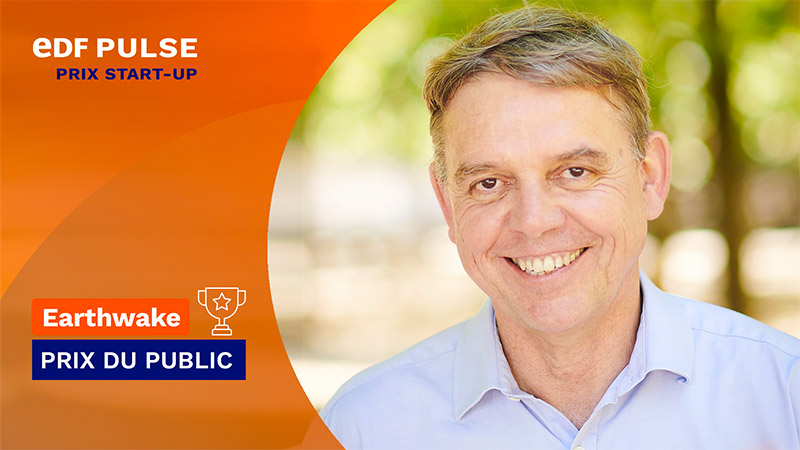
Tons of plastic have accumulated in the oceans since 1950
At a time when climate risks and pollution threaten the survival of many species – including humanity – some think that technology will save the world … others consider that it has led us to disaster and that the only way out is to free ourselves from it by radically changing the system.
But while the future is debated, a majority of the population lives in a cruel present: global warming, loss of resources, destruction of habitats, insecurity, pollution and forced migration to the North or to cities.
And developed countries can no longer ignore the problem. Waste from the West dumped further afield frequently finds its way back. In this case, it is communities living on modest incomes in remote areas who are the first to suffer the consequences. And their anger grows…
Earthwake
The low-tech solutions incubator
Our observation is simple:
In order to be able to think calmly about our common future, we must first act for the present. The mission that Samuel Le Bihan and the team have undertaken with Earthwake is to put technology to work on this emergency:
To be a laboratory and an incubator of low-tech innovations, accessible to all, dedicated to waste repurposing around the world.
These technologies will be made available to communities with the aim of rebuilding their ecological and economic autonomy, and ultimately contributing to reducing social inequalities.
Our first answer : the Chrysalis
Because more than 8 million tonnes of household plastics continue to flow into the oceans each year, 80% of which comes from the land!
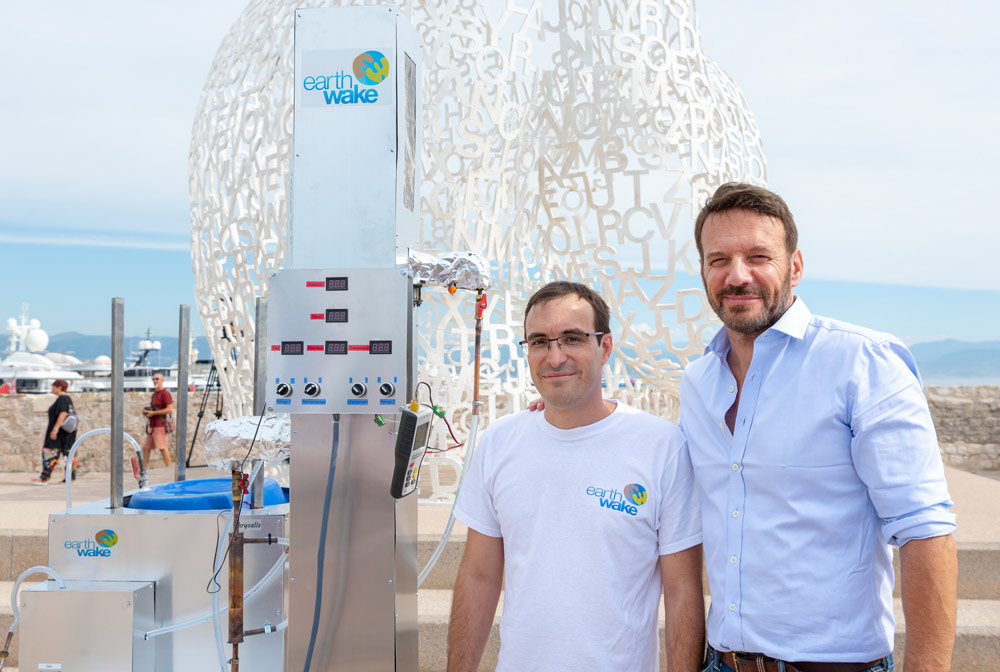
It is from the meeting between Samuel Le Bihan and Christofer Costes, inventor of technological solutions dedicated to autonomy, that the idea of the Chrysalis was born: a machine allowing populations to treat pollution upstream by recycling plastic waste.
Based on pyrolysis, a well-known process of oxygen-free combustion, the Chrysalis is the first machine to recycle plastic waste into fuel, in a small, mobile format, and at an affordable price.
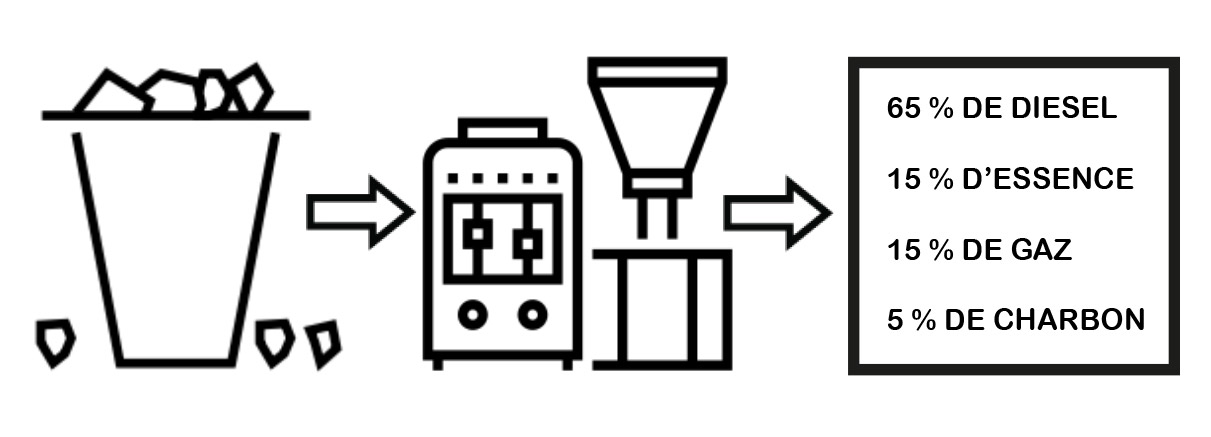
The Chrysalis 40 is capable of transforming 40 kg of plastic waste into energy per cycle!
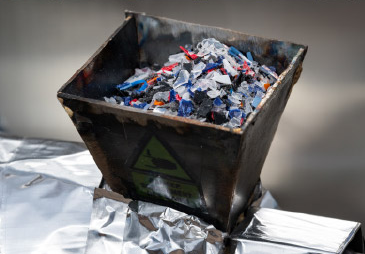
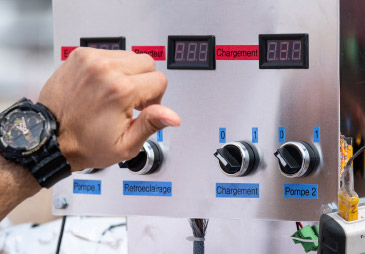
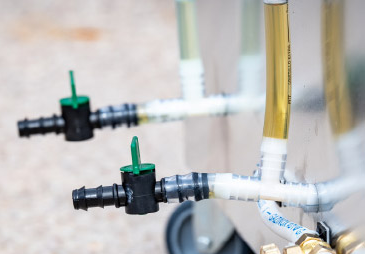
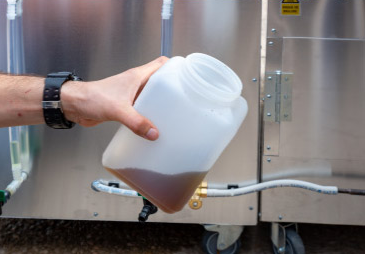
After several years of R&D, the Chrysalis is now operational and serves a successful circular economy model.
A world first at Puget-Théniers
Today, we run the household garbage trucks of a French town with our plastic fuel!
The success of this first pilot project proves the practical utility of the Chrysalis and the efficiency of our technology.
Chrysalis 40 is part of the Solar Impulse 1 000 solutions
The first label to assess the economic profitability of products or processes that protect the environment.
The Solar Impulse Efficient Solution Label is attributed following a strict selection process performed by external independent experts. By ensuring high standards of sustainability and profitability, this internationally recognized label is considered as a recognition for innovators and as a credible marker of quality for solution seekers in business and governments, facilitating their sourcing of solutions to reach environmental commitments.
From a Senegalese fishermen’s cooperative to the waste collection service in a French village, the positive impacts are the same!
Economic
impacts
Financially accessible, la Chrysalis est un investissement de départ qui n’engage pas la communauté dans des dépenses récurrentes et lourdes, créant au contraire un modèle économique viable et circulaire.
Self-sufficient, the Chrysalis is an initial investment that does not commit the community to recurrent and heavy expenses, creating instead a viable and circular economic model.
Mobile, it can be quickly installed in the very places where pollution is generated.
The fuel created also allows energy autonomy for the communities.
Social
impacts
Its deliberately low-tech design makes it technically accessible to as many people as possible.
It allows the creation of jobs around the machine, the collection and sorting of plastic waste.
It produces diesel that can be used immediately in a generator, a boat, a truck. It therefore generates autonomy, income and jobs.
Ecological
impacts
By developing an autonomous waste recycling economy, it invites the entire community to selectively sort waste and collectively clean the environment.
It reduces CO2 emissions by limiting underground oil extraction and prevents 48 tonnes of additional plastic waste reaching the oceans each year.
Plastic waste disappears from the pollution cycle forever, becoming a source of energy.
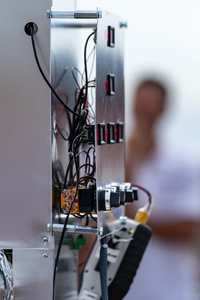
Chrysalis is the first in a series of solutions incubated by Earthwake to contribute now, profoundly, to the future of humanity and the planet.
We are of course considering this technique as a transitional solution pending the drastic reduction in the use of plastic from petroleum, the systematic use of ecological alternatives and the massive deployment of renewable energies.
The Earthwake community
Team
Earthwake is above all a community of intersecting destinies and skills, driven by the same enthusiasm, the same courage, the same mission for this world.
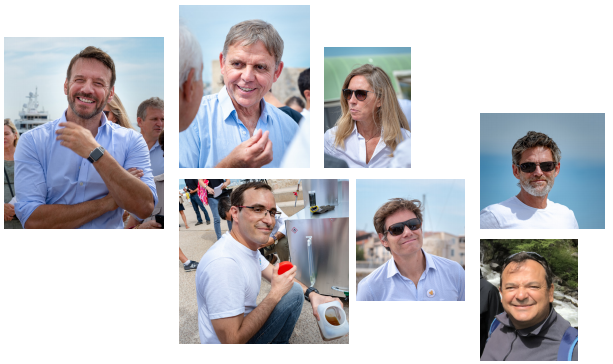
The team is led in the adventure by Samuel Le Bihan, an actor committed for years to raising awareness of autism and ecology; François Danel, leader of Action Against Hunger for 6 years, and now manager of the association; Christofer Costes, brilliant autonomy technician who designed the Chrysalis; his wife, Véronique Costes, who assists him on a daily basis in R&D; Jérôme Duthoit, who provides invaluable technological expertise, Georges Fritsch, a seasoned entrepreneur based in the south of France, who stimulates the essential networking and business development. Morgane Thomas, Claire Chales and Thibaut Loyal, three committed and motivated civic service volunteers complete the team.
The team is guided by the board of directors made up of Samuel Le Bihan (President and co-founder), Benoît Miribel (Treasurer and co-founder), François Danel, Laurent Butstraen, Caroline Sénéclauze, Jacques Gaillard, Yann Bucaille, Lyoko Miyoshi
Parters
We have been supported for more than 5 years by local authorities, companies committed to ecology, the energy and plastic sectors and international solidarity stakeholders – and we would like to thank them all.
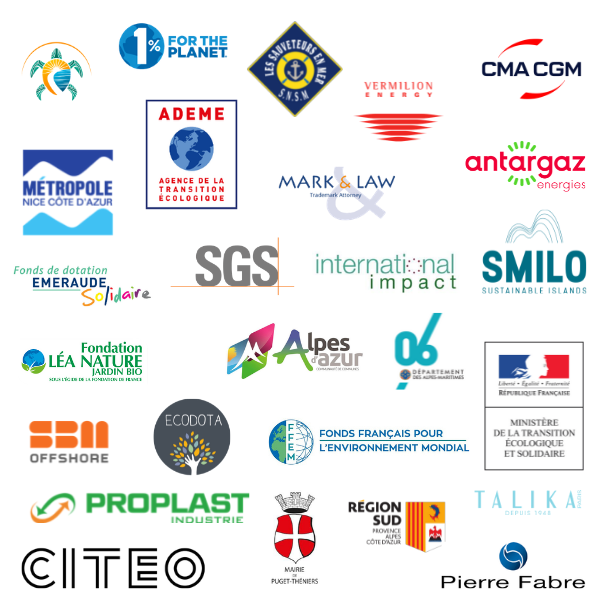
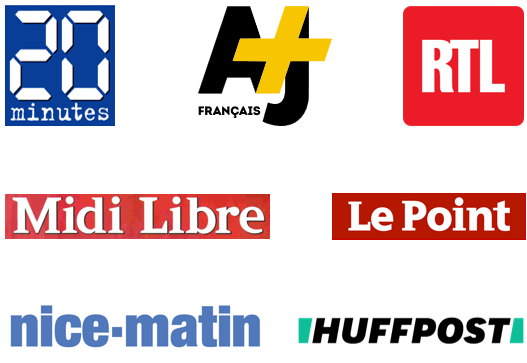
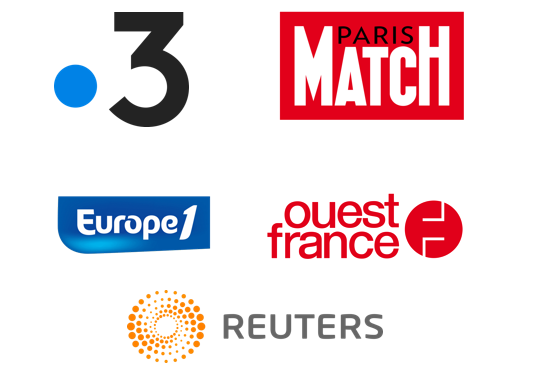
Media
The local and national media have relayed our projects on multiple occasions giving each of our interventions great coverage.
Pilot projects
France
In Puget-Théniers, we run the municipal garbage trucks with the plastic fuel we produce.
This is an innovative project supported by the Région Sud, the Département des Alpes Maritimes, the Communauté de Communes Alpes Azur, CITEO, SBM Offshore and SGS.
Senegal
We want to install a pilot machine in the Proplast recycling site in Thiès, Senegal. Earthwake’s innovation will allow Proplast to diversify its recycling methods and, above all, to take advantage of the fuel produced to supply its plant with electricity.
Tunisia
On the islands of Kerkennah, in Tunisia, we are going to develop a project in partnership with the NGO SMILO – and supported by The French Facility for Global Environment (FFEM) – to find a solution to the abandonment of plastic fishing traps at sea. The installation of a Chrysalis 40 would encourage fishermen to bring back their waste to turn it into fuel.
Your investment for the future
After 5 years of team mobilization, supported by the first funds, Chrysalis is ready to become a social, ecological and sustainable project.
We must now enter a 3-phase sequence:
- Optimization
- Pilot projects
- Scaling up
For 5 years, thanks to your grants, donations, financial or material support or even volunteering, we have written the first chapters of a story whose economic, ecological and social impact has the potential to be massive.
Thank you all for your help in building this great adventure!
Contact us
The Earthwake association fights against plastic waste by actively encouraging the creation, production and deployment of low-tech solutions to reduce and revalue waste.
MAILING ADDRESS
EARTHWAKE
110 rue Jean Jaurès
92800, Puteaux
CONTACT
François Danel
+33 6 73 28 64 82
Leave a message in the inset below

